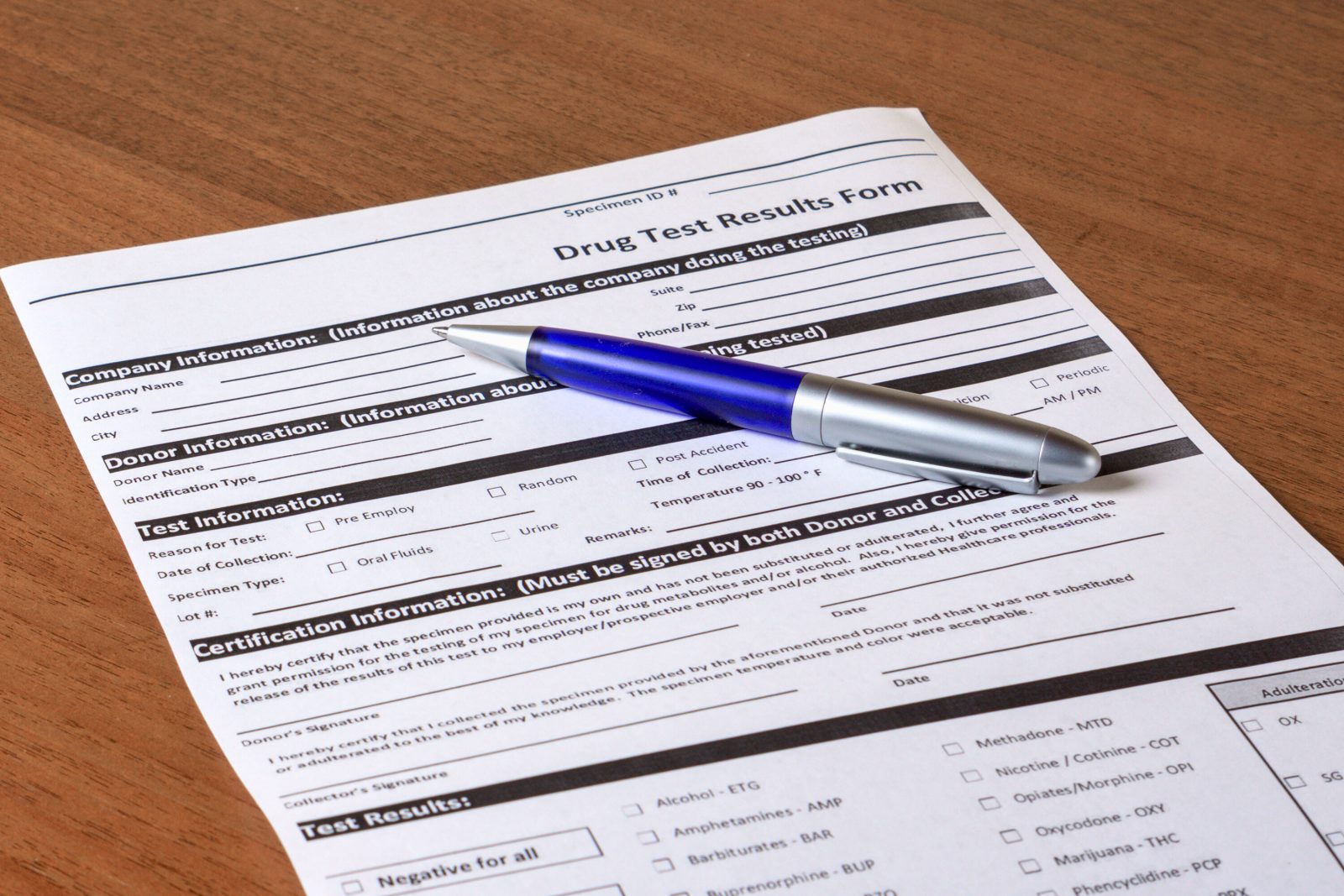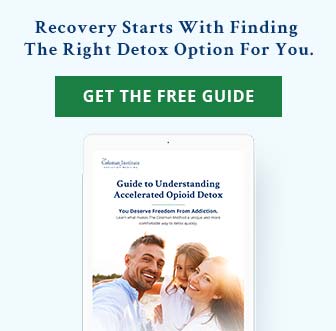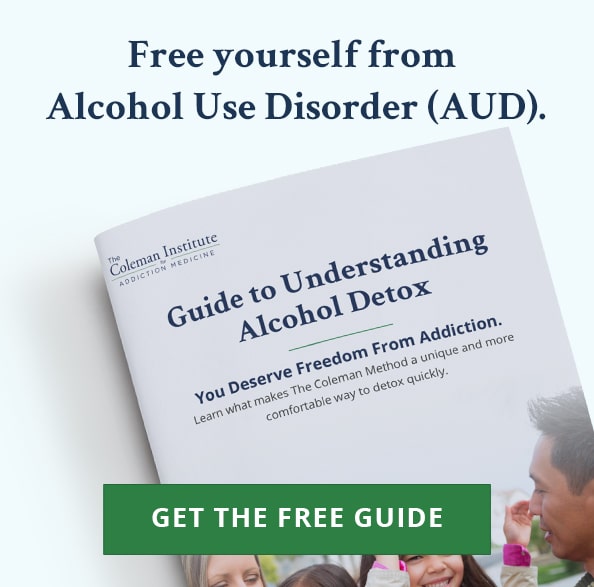The Coleman Institute Blog
6
May 25
Is The Coleman Institute Open? Why We Closed Briefly & What’s Ahead
If you've recently searched "Is The Coleman Institute open?" or "Why did the Coleman Institute close?", we're here to provide a clear and up-to-date overview of where we've been and where we're going.
A Legacy of Compassionate Detox Care Since 1998
Founded in 1998 by Dr. Peter Coleman, the Coleman Institute has helped thousands of individuals safely detox from opioids, alcohol, and other substances. With a focus on outpatient medical detox protocols, we have long been recognized for our effective, comfortable approach to recovery.In 2017, The Coleman Institute joined BayMark Health Services, working collaboratively with Applegate Recovery. This partnership helped us provide evidence-based detox services as part of a larger behavioral healthcare network.
Why Did the Coleman Institute Close?
In late 2024, the Coleman Institute experienced a brief pause in operations during a leadership transition and organizational restructuring. This temporary closure allowed for internal updates and a thoughtful transition to independent ownership, ensuring continued alignment with our long-standing mission and values.Reopening Under New Independent Leadership
As of 2025, the Coleman Institute has reopened as an independently operated organization, now led by Jennifer Gifford. Jennifer has been a part of the Coleman team since 2000 and now serves as CEO and owner. Her leadership reflects decades of experience and a deep commitment to the values that have defined Coleman since its founding.Is the Coleman Institute Open Now?
Yes, the Coleman Institute is currently open and actively serving patients at our Richmond, Virginia, headquarters.Additional Locations Reopening
We are also working to reopen several affiliate locations across the country in the near future, including:- Denver, Colorado (Aurora) - Target reopening date in late May 2025
- Atlanta, Georgia (Dawsonville) - Target reopening date in late May 2025
- Tampa, Florida (Largo) - Target reopening date in early June 2025
- Orange County, California (Santa Ana)
- San Francisco, California (Burlingame)
21
Apr 25
Tianeptine Powder Explained – Safety Concerns, Addiction Risks, & Withdrawal
Tianeptine powder has drawn attention in recent years, though not for positive reasons. Marketed under brand names like Stablon in other countries, tianeptine was originally developed as a prescription antidepressant. These pharmaceutical versions are typically produced as tablets, not powders. However, in the United States, tianeptine is often sold in unregulated forms, including powder and liquid, under street names like ‘zaza’ or ‘gas station heroin’. This growing misuse has raised serious concerns about safety, addiction potential, and withdrawal risks.
What Is Tianeptine Powder?
Tianeptine is a synthetic drug that was originally prescribed to treat major depressive disorder. Unlike traditional antidepressants, tianeptine works primarily by modulating glutamate activity and, more importantly, by acting as a mu-opioid receptor agonist. This opioid receptor activity is key to understanding why misuse can quickly spiral into dependence.Tianeptine is now available through unregulated markets in several forms, including powder, capsules, and liquids. However, tianeptine powder, particularly in the sodium form, poses unique risks because it is pure, highly potent, and difficult to measure dosages due to its consistency.
Pharmaceutical versions such as Stablon, Tatinol, and Coaxil are provided by medical professionals in tablet form in other countries. In the United States, powdered versions are often bought online or at various retailers, including gas stations.
How Tianeptine Powder Became a ‘Gas Station Heroin’
Sold under flashy names like ‘zaza’, tianeptine is often marketed as a supplement or nootropic. In reality, its opioid-like effects can lead to euphoria, sedation, as well as physical and psychological dependence, much like traditional opioids such as morphine. Because it acts directly on opioid receptors, users may initially feel mood elevation or pain relief, but with repeated use, tolerance builds rapidly, setting the stage for addiction.The nickname 'gas station heroin' illustrates how potent and dangerous tianeptine powder can be, while remaining accessible through shops.
Is Tianeptine Powder Similar to Kratom?
In some ways, yes. Both tianeptine and kratom affect the brain's mu-opioid receptors, producing effects like euphoria and sedation. However, while kratom is derived from a plant (Mitragyna speciosa) and contains multiple alkaloids, tianeptine is a synthetic compound. Many users seeking alternatives to prescription opioids may turn to substances like kratom or tianeptine, believing them to be safer options. Unfortunately, both can lead to dependence, withdrawal, and the need for professional detox services.Addiction & Withdrawal Risks
Because tianeptine interacts so powerfully with opioid receptors, it carries a high risk of misuse, especially for those already struggling with addiction. Symptoms of tianeptine dependence and withdrawal can mirror those of traditional opioid withdrawal.Symptoms may include -
- Anxiety & panic attacks
- Muscle aches & cramps
- Insomnia
- Nausea & vomiting
- Depression & mood swings
How The Coleman Institute Can Help
At The Coleman Institute, we specialize in outpatient detox services designed for substances, including those that impact the brain's opioid receptors, such as tianeptine. Our Outpatient Opioid Detox program helps patients safely and comfortably manage withdrawal symptoms without the need for lengthy inpatient stays. We understand the unique challenges that come with tianeptine dependence, and we provide compassionate, medically supervised care to promote long-term recovery.If you or a loved one is struggling with tianeptine use, help is available. Call The Coleman Institute at 703-991-0330 or schedule a callback to learn more about our safe, comfortable, and effective detox services.
15
Apr 25
Kratom Dependence – Why This ‘Natural Remedy’ is Dangerous
In recent years, kratom has gained a reputation as a so-called ‘natural remedy’ for pain, anxiety, and even opioid withdrawal. Available in smoke shops, gas stations, and online, it is marketed as a legal herbal alternative to prescription medications. But as kratom use becomes more widespread, so do the stories of individuals developing kratom dependence, struggling with painful withdrawal symptoms, and needing help stopping.
At The Coleman Institute, we are seeing firsthand how kratom can negatively impact people. Many are surprised by how addictive it has become for them despite its natural origins. Our Outpatient Kratom Detox Program helps those struggling safely, comfortably, and quickly detox from kratom.
What Is Kratom?
Kratom (Mitragyna speciosa) is a tropical tree native to Southeast Asia, with leaves that contain compounds called mitragynine and 7-hydroxymitragynine. These compounds interact with opioid receptors in the brain, producing effects similar to opioids, such as euphoria, pain relief, and sedation, especially at higher doses.Some users take kratom for its stimulant-like effects at low doses or to manage chronic pain, while others use it as a 'DIY remedy' for opioid withdrawal. However, regular use can lead to tolerance, physical dependence, and withdrawal symptoms similar to those experienced with other opioids.
Is Kratom Addictive?
Despite being unregulated at the federal level in the United States, kratom carries a very real risk of addiction. Continuous use leads to both physical and psychological dependence.Individuals who try to stop using kratom can experience withdrawal symptoms such as:
- Intense cravings
- Anxiety & irritability
- Mood swings & depression
- Insomnia
- Muscle aches
- Runny nose & watery eyes
- Nausea, vomiting, & diarrhea
The Rise in Kratom Use and Its Consequences
Many perceive kratom as a ‘safe’ or ‘natural’ alternative to opioids, but this perception is dangerously misleading. According to the FDA, there is growing evidence that kratom can cause addiction, seizures, liver damage, and even death in some cases. Emergency room visits and poison control calls related to kratom have also increased in recent years. Many find it difficult or even impossible to stop due to the severity of the withdrawal symptoms. That’s when kratom detox becomes necessary.The Coleman Institute’s Kratom Detox Program
At The Coleman Institute, we offer an Outpatient Kratom Detox Program that helps people quit kratom quickly and safely without the need for an inpatient stay or overnight hospitalization.Why Choose Our Kratom Detox?
- Outpatient Setting – Detox in the comfort of a non-hospital environment for five days.
- Comfort Meds to Help Minimize Withdrawal Symptoms - Customized medications throughout the detox that greatly reduce patient discomfort.
- Compassionate, Personalized Care – Our experienced medical team provides continuous monitoring, emotional support, and a tailored treatment plan.
- Aftercare Planning & Relapse Prevention – Detox is only the first step. We help you develop a long-term recovery strategy to maintain sobriety and avoid relapse.
- Break the Cycle – Many of our patients have already tried to quit kratom on their own, sometimes multiple times, without success. At the Coleman Institute, people stuck in the cycle of dependence finally have a safe, proven way to move forward.
Who Should Consider Kratom Detox?
You may benefit from our kratom detox program if:- You’re using kratom daily or multiple times per week
- You feel like you need kratom just to get through the day
- You’ve experienced withdrawal symptoms when trying to quit
- You’ve tried to quit before but couldn’t
- You want a safe, medically supervised way to start fresh
It’s Time to Break Free from Kratom Dependence
If you or someone you love is struggling with kratom addiction, don’t wait for the situation to worsen. Kratom may be legal, but that doesn’t equate to being harmless. As dependence grows, so do the risks to your mental and physical health.At The Coleman Institute, we’ve helped thousands of people safely detox over the last 25 years from addictive substances, including kratom, with a 98% completion rate. Our compassionate team is here to help you achieve lasting recovery.
Learn more about our Kratom Detox Program by visiting our webpage!
Call us at 703-991-0330 to speak with a recovery specialist or schedule a callback.
11
Apr 25
How Long Does Adderall Stay in Your System?
Understanding Adderall's Duration in the Body
The length of time Adderall stays in your system depends on several factors, including:- Formulation type: Immediate-release (IR) Adderall usually clears the body in about 24 hours, while extended-release (XR) can be in your system even longer.
- Individual metabolism: Factors like body weight, hydration, and liver function can impact how quickly your body processes the drug.
- Dosage and frequency: Higher doses can extend the time Adderall is detectable.
What Withdrawal from Adderall Feels Like
Coming off Adderall can be mentally and emotionally difficult. Common withdrawal symptoms include:- Fatigue and low motivation
- Anxiety, irritability, or depression
- Intense cravings
- Sleep disruptions
A Safer, More Comfortable Way to Quit Stimulants
At the Coleman Institute, we have developed an Outpatient Stimulant Detox Program aimed at safely addressing Stimulant Use Disorder with minimal disruptions to daily life.What You Can Expect:
- A medically supervised, customized detox plan
- Comfort medications to ease symptoms
- Daily check-ins (virtual or in-person) during the first week
- Most people can return to their daily routine by Day 5
Why People Choose Us
Patients across the country trust our outpatient detox program for being:- Safe and medically supported
- Non-residential and flexible
- Personalized to your unique situation
- Backed by over 25 years of experience
Start Your Recovery Journey
You don't have to face Adderall withdrawal by yourself. The Coleman Institute's outpatient detox program offers a supportive and effective way to abstain from stimulants and reclaim your health. Request a confidential callback to learn more!26
Mar 25
Can I Get Addicted to Xanax If I Have Anxiety?
Xanax, also known as Alprazolam, is one of the most commonly prescribed psychiatric medications in the United States. It’s a fast-acting benzodiazepine that helps reduce symptoms of panic attacks and generalized anxiety. However, many people wonder - Can I get addicted to Xanax even if I’m taking it as prescribed for anxiety?
The answer is yes; Xanax carries a high risk for dependence and misuse, even when taken under a doctor’s supervision. Understanding how this medication works, its potential risks, and alternative anxiety treatments can help you make informed decisions about your health.
How Xanax Works for Anxiety
Xanax enhances the effects of gamma-aminobutyric acid (GABA), a neurotransmitter that slows down brain activity; this produces a calming effect, reducing feelings of anxiety and panic. While this can provide short-term relief, Xanax does not treat the underlying causes of anxiety, and long-term use can lead to physical dependence.
Can You Get Addicted to Xanax?
Yes, Xanax has a high potential for addiction because of how it interacts with the brain’s reward system. Even when taken as prescribed, the body can develop a tolerance, meaning higher doses are needed to achieve the same effect. These factors contribute to the high risk of dependence and addiction over time.
Risk Factors for Xanax Addiction -
- Duration of Use - The longer you take Xanax, the higher the likelihood of dependence.
- Dosage - Higher doses increase the risk of addiction.
- Personal History - A history of substance use disorder and/or mental health conditions may increase susceptibility.
- Frequency of Use - Taking Xanax regularly, even at a low dose, can lead to dependence.
Signs of Xanax Dependence & Addiction
If you are taking Xanax for anxiety, it’s important to recognize the warning signs of dependence and addiction, which can include -- Feeling like you need Xanax to function daily
- Increasing your dosage without medical advice
- Experiencing withdrawal symptoms when you miss a dose
- Craving Xanax or obsessively thinking about when you’ll take your next dose
- Neglecting responsibilities or relationships due to Xanax use
Safer Alternatives for Managing Anxiety
If you are concerned about Xanax dependence, there are safer long-term treatment options for managing anxiety, including -- Therapy - Cognitive Behavioral Therapy (CBT) and Dialectical Behavior Therapy (DBT) are highly effective evidence-based approaches to anxiety.
- Non-Addictive Medications - Selective serotonin reuptake inhibitors (SSRIs) and serotonin-norepinephrine reuptake inhibitors (SNRIs) are often recommended as first-line treatments for anxiety disorders.
- Lifestyle Changes - Regular exercise, meditation, breathing techniques, and improved sleep can significantly reduce anxiety symptoms.
- Herbal & Natural Remedies - Some people find relief through supplements like magnesium, ashwagandha, or L-theanine (consult your doctor before use).
What to Do If You’re Worried About Xanax Dependence
If you believe you may be developing a dependence on Xanax, the most important step is to talk to a medical professional. Quitting Xanax cold turkey can be dangerous due to the risk of withdrawal complications, such as seizures. A medically supervised detox is the safest way to discontinue benzodiazepines.At The Coleman Institute, located in Richmond, Virginia, we offer a safe and effective Xanax detox program to help people overcome dependence. Our outpatient Rapid Benzo Detox Program provides medical oversight, comfort medications, and a personalized plan for long-term recovery.
Conclusion
While Xanax can sometimes be helpful in short-term treatment plans for anxiety, it also carries significant risks. If you or a loved one are struggling with Xanax use, know that help is available. Exploring alternative treatments to benzos and seeking professional guidance can lead to a healthier, more sustainable approach to managing anxiety and fostering long-term recovery.
For more information on our approach to Xanax Detoxification, visit our Rapid Benzo Detox Program webpage!








